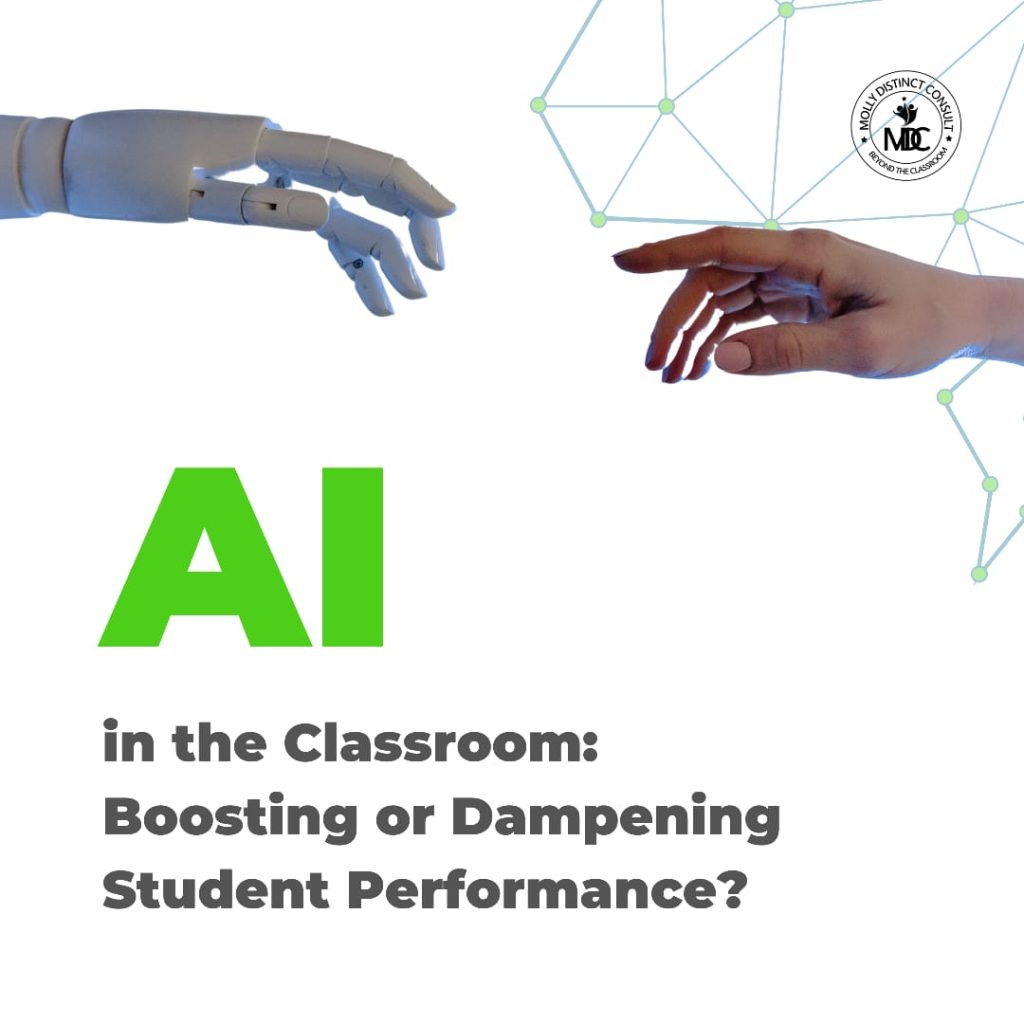
AI in the Classroom: Boosting or Dampening Student Performance?
Artificial intelligence (AI) has become an increasingly popular tool in the education sector in recent years. From personalized learning to automated grading, AI has the potential to transform the way we learn and teach. However, some people have expressed concern that AI could actually reduce student performance. Why not read on to find out the truth? In this blog post, you will discover both sides of the argument and explore whether AI is a positive or negative influence on student performance.
READ ALSO Looking Into the Future: Can AI Replace Teachers?
On the one hand, proponents of AI in education argue that it has the potential to greatly enhance student performance. By providing personalized learning experiences, AI can help students learn at their own pace and in a way that suits their individual needs. This argument favours the needs of special needs and children who may not cope with conventional learning pace. The use of AI can lead to improved engagement via the use of AI generated interaction prompts, greater motivation, and ultimately better academic outcomes. In addition, AI-powered tools such as chatbots and virtual tutors can provide instant feedback and support to students, helping them to stay on track and overcome learning challenges.
On the other hand, there are those who believe that AI could actually reduce student performance. One concern is that AI-powered tools may lead to over-reliance on technology, with students becoming less engaged in the learning process and relying too heavily on automated feedback. According to experts, the ability to memorize concepts is a factor in children intelligence and AI stands in the way as students may not engage in personal and deep research which improves memory.
In addition, there are concerns that AI may perpetuate biases and inequalities in education, as algorithms may be programmed with inherent biases that result in unfair treatment of certain students or groups. The judgment of AI is based on pre-programmed machine learning which may have ethical biases. For example, the machine may have been programmed to grade people who start sentences with small letters less. A student may outperform others by providing more accurate answers but fail at starting sentences with capital letters. The machine will grade the student with more accurate answers less than those with less accurate answers.
What is the verdict?
It’s important to maintain a neutral ground and acknowledge that the impact of AI on student performance is likely to be complex and multifaceted. While there is evidence to suggest that AI can enhance student performance by providing personalized learning experiences and instant feedback, there are also concerns that over-reliance on technology and inherent biases in algorithms could have a negative impact on students’ mental development.
Conclusion
Ultimately, the success of AI in education will depend on how it is used and implemented. AI should be seen as a tool to enhance rather than replace human teachers, and educators must be mindful of the potential limitations and biases of AI-powered tools. By using AI in a responsible and thoughtful way, we can ensure that it has a positive impact on student performance and contributes to a more effective and equitable education system.
About Molly Distinct Consult
Molly Distinct Consult is Nigeria’s foremost teacher recruitment agency with demonstrated expertise in meeting the educator needs of premium schools. We delight in understanding the needs of our clientele beyond the knowledge of the role in question. This helps us tailor your solution to detail by recruiting the best professional and passionate teacher from our over one thousand teacher data-base. Connect with us let’s help you solve your professional teacher needs.